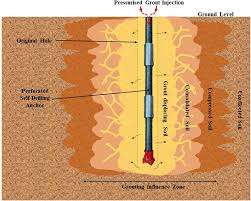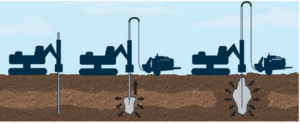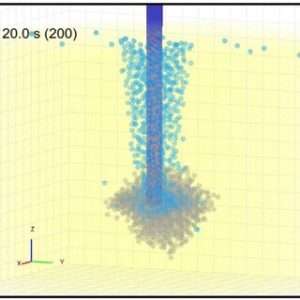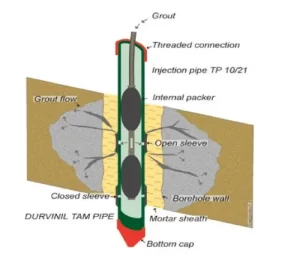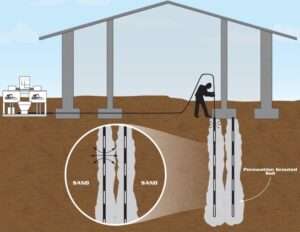Consolidation grouting is a powerful technique used in construction to improve the strength and stability of foundations built on weak or unstable soil. This method involves injecting grout into the ground to reduce settlement and increase load-bearing capacity, ensuring that structures have a solid base even in challenging soil conditions. Let’s explore how consolidation grouting works and its vital role in strengthening foundations.
What is Consolidation Grouting?
Consolidation grouting is a ground improvement method designed to stabilize soft or weak soil by injecting grout, often cement-based or chemical, into the ground. The goal is to increase soil density, reduce voids, and provide a more solid, stable foundation for construction projects. This process effectively improves the soil’s mechanical properties, making it more resistant to settlement and shifting.
The Process of Consolidation Grouting
1.Drilling Boreholes: Small, strategically placed boreholes are drilled into the ground where soil consolidation is required. These holes can be drilled to various depths, depending on the project’s needs and the soil type.
2.Grout Injection: Once the boreholes are prepared, grout is injected under pressure into the soil. The grout fills the voids between particles and hardens, increasing soil cohesion and reducing compressibility.
3.Consolidation: As the grout sets, it consolidates the soil, improving its load-bearing capacity and reducing the risk of differential settlement (uneven sinking of the ground).
Benefits of Consolidation Grouting
1.Improved Soil Strength
Consolidation grouting increases the overall strength of weak soil, making it capable of supporting heavy structures. It densifies loose or highly compressible soils, allowing foundations to bear more weight.
2.Prevention of Settlement
Weak soils are prone to settling unevenly over time, which can lead to structural damage. By consolidating the soil, the grouting method prevents or reduces this risk, ensuring that buildings and other structures remain level.
3.Enhanced Stability in Soft Soils
In areas with soft clay, silt, or sandy soils, consolidation grouting provides a stable base for construction. It is particularly effective in geotechnically challenging environments where traditional foundation methods may not suffice.
4.Cost-Effectiveness
Rather than replacing or excavating soft soil, consolidation grouting strengthens the existing ground, offering a more economical alternative to other ground improvement techniques.
Applications of Consolidation Grouting
Consolidation grouting can be applied in various construction scenarios where soil stability is a concern:
- Building Foundations: Consolidation grouting is commonly used to reinforce foundation soils, particularly in residential, commercial, and industrial buildings.
- Infrastructure Projects: It is crucial for stabilizing roads, bridges, and tunnels that are constructed over weak or uneven ground.
- Water Retaining Structures: Dams, reservoirs, and levees benefit from consolidation grouting to enhance soil cohesion and prevent seepage or failure.
- Repair and Rehabilitation: It can be used for retrofitting older buildings or structures that are experiencing settlement problems due to weak or shifting soil.
Environmental Considerations
Consolidation grouting is a relatively environmentally friendly technique, especially when non-toxic or biodegradable grouts are used. However, it’s important to ensure that grout does not contaminate groundwater or surrounding ecosystems. Modern methods of grouting are increasingly focused on sustainability, reducing the environmental impact while achieving optimal ground stabilization.
Conclusion
Consolidation grouting is an effective solution for strengthening foundations in weak soil conditions. By increasing soil density and stability, it prevents settlement, enhances load-bearing capacity, and ensures the safety and longevity of structures. Whether used in new construction or to rehabilitate existing foundations, consolidation grouting continues to be a valuable technique for creating secure, stable, and reliable foundations in challenging soil environments.


